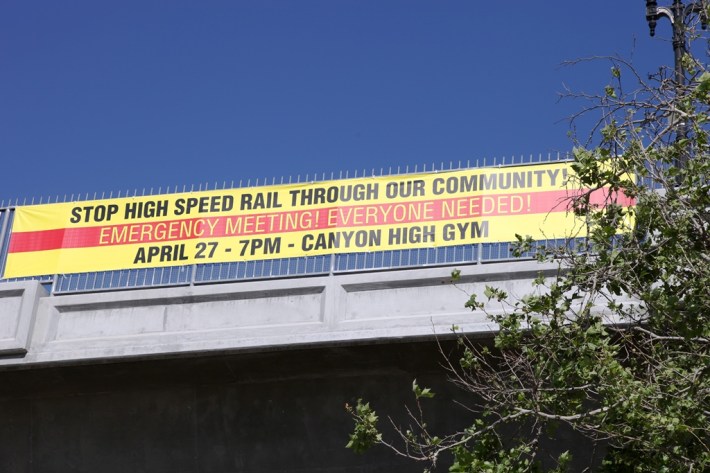
The Assembly Transportation Committee said “thanks, but no thanks” to A.B. 6, legislation by a Santa Clarita Republican that would give voters the chance to overturn $8 billion in bonds meant to fund California High Speed Rail. A.B. 6 was defeated by an unofficial vote of 7-4 (which will likely be 11-5 when the official tally is released.)
Assemblymember Scott Wilk (R-Santa Clarita) introduced the legislation in hopes of rerouting the funding approved by voters in 2008 for high-speed rail to schools instead. The wastefulness of spending on high-speed rail has been an article of faith for Republicans, with governors in Wisconsin and Florida actually returning federal funding for bullet train projects.
With Governor Jerry Brown championing the project, conservatives have taken to mocking the “Browndoggle” even though campaigning against high-speed rail has not proven to be an electoral winner in the Golden State.
So rather than just attacking high speed rail, Wilk's argument wasn't just that high-speed rail is a waste, but that the money could be better spent on schools. Wilk made that argument this weekend in the Sacramento Bee.
I believe there is a better use of the $8 billion set aside for high-speed rail. California is in dire need of school facility funding. The last statewide school bond was passed in 2006; only $187 million remains and of that, $142 million is earmarked for seismic repair.
According to the Office of Public School Construction, future need for K-12 new construction and modernization is estimated at more than $16 billion. These bond funds not only are critical to schools, they are beneficial to the economy and will generate thousands of construction-related jobs.
While Wilk's contention that the project has changed a lot since 2008 is unarguable, he makes what Robert Cruickshank at the California High Speed Rail Blog notes is a false choice. Voters already approved funding for high-speed rail, and sending the same bonding back to the voters will cause unnecessary delays in project construction and could jeopardize the bond rating for the project even if the referendum fails.
I can empathize with Wilk's call for better funding for schools. While I'm generally supportive of high-speed rail, I would personally love for the funding to be used for inter-city rail, transit operations subsidies, and safer streets for people who bike and walk.
But that's not what voters passed in 2008; they passed a bond for high-speed rail. While voters can change their minds, which there is no sign they have done in this case, it's bad policy to continually revisit the vote and make the project take even longer and cost even more.
Of course, local politics may be as much of a reason to oppose high-speed rail funding as a desire to improve California's public education system. As noted in the picture above, Santa Clarita is virulently opposed to the current route for CAHSR and is planning an emergency meeting next Monday to oppose the project.





